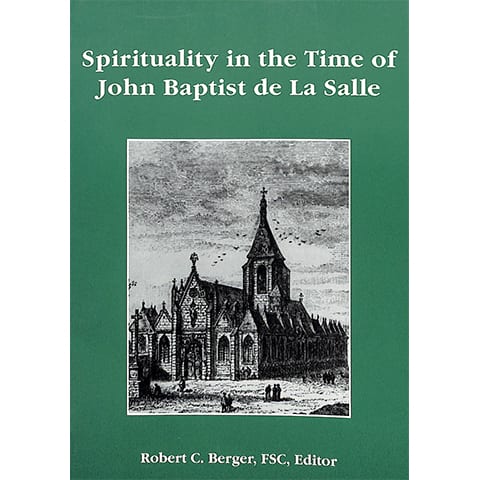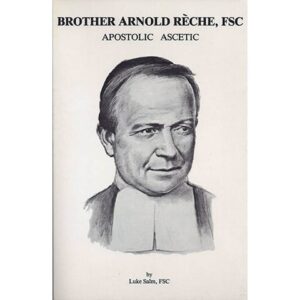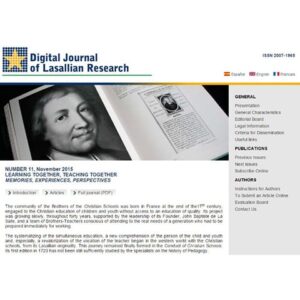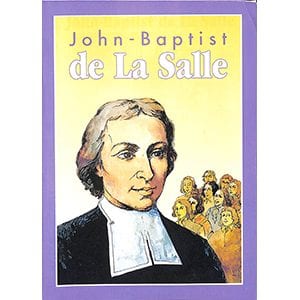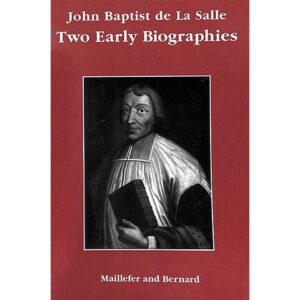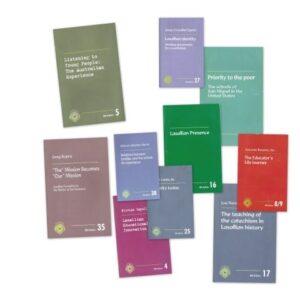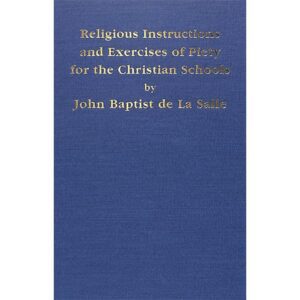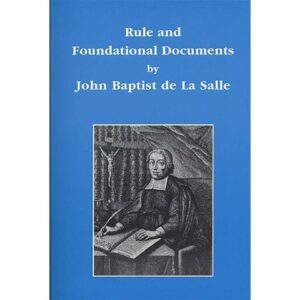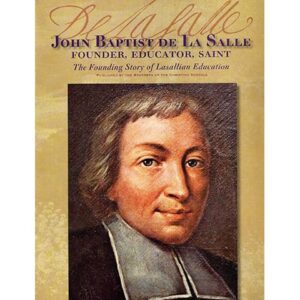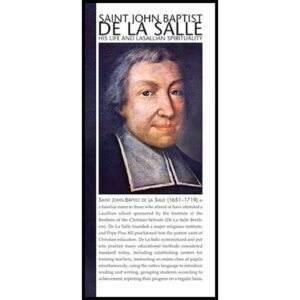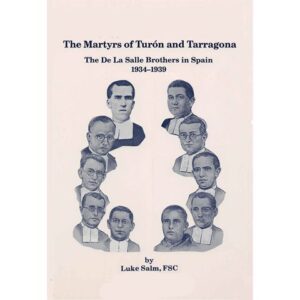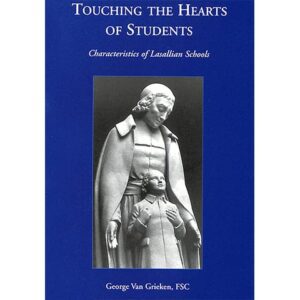Description
-
- Jean-Guy Rodrigue, FSC – Religious Life in France During the Sixteenth and Seventeenth Centuries.
- Andre Rayez, SJ – Lasallian Studies in the Mid-twentieth Century.
- Andre Rayez, SJ – The Spirituality of Self-Abandonment: Saint John Baptist de La Salle.
- Yves Poutet, FSC – John Baptist de La Salle: Adapting to the Times.
- Maurice-Auguste Hermans, FSC and Michel Sauvage, FSC – Founder of the Brothers of the Christian Schools.
- Michel Sauvage, FSC – The Gospel Journey of John Baptist de La Salle (1651-1719)
- Luke Salm, FSC – The Lasallian Charism in Religious Life Today
- Michel Sauvage, FSC – Lasallian Spirituality: Our HeritageThis book of eight essays provide an in-depth survey of all aspects of the French School of spirituality that influenced John Baptist de La Salle and the Institute of the Brothers of the Christian Schools that he founded and led for over forty years.
Editor: Br. Robert C. Berger, FSC
Published: Christian Brothers Conference – 1999
(293 Pgs.)
From the Introduction
There are few tasks less enviable than trying to introduce sixteenth and seventeenth-century French spirituality. There are so many issues, thinkers, and debates that come under the rubric “spirituality” that simply identifying the field to be covered could take several volumes. Even then, writing that is most often called the “French School” of spirituality usually makes for some difficult reading. However, this third volume of Current Lasallian Studies contains a wonderful collection of articles by six eminent scholars of our day. To their great credit they have produced for us a very accessible and informative background that situates spirituality during the time of John Baptist de La Salle in history.
To know the time and place in which a person lived is to know much about the person. De La Salle’s unique charism and his contributions to the Church and society are more completely understood as they are located in his specific time period. Jean-Guy Rodrigue captures the spiritual movements evident in France during the sixteenth and seventeenth centuries. Through his scholarship we are introduced to key figures in that spirituality: Mme Acarie, Francis de Sales, Pierre de Berulle, Charles de Condren, Jean-Jacques Olier, and Jean Eudes. Rodrigue shows that the principal themes of their teaching can help us appreciate sixteen topics that he highlights in De La Salle’s spirituality for teachers.
Andre Rayez directs our attention to initial studies in Lasallian spirituality under four headings: apologetic studies, modern adaptation, specialized studies, and comprehensive studies. Through the analysis of textual criticism, Rayez examines the worth of De La Salle’s first biographies and the authenticity of his spiritual writings. Once De La Salle’s original texts are identified, Rayez recognizes and catalogues the material that De La Salle allowed himself to borrow from and the works he used most. We discover borrowed passages and summaries as well as original and personal writings. With an overview of the sources used by De La Salle, Rayez shows the Founder as a soul led by God on a unique spiritual journey of self-abandonment. Finally, the extensive notes of both articles by Rayez give us supplemental material that should never been viewed as secondary and could easily comprise a third equally informative chapter.
Another piece of the picture that gives us a fuller look into the life of the Founder is his collaboration with Claude-Franfois Poullart des Places. Yves Poutet describes how both men understood and esteemed each other’s dedication to the Church to such a degree that they combined their energies and charisms for the sake of education.
A fresh portrait of John Baptist de La Salle by Maurice-Auguste Hermans and Michel Sauvage is a wonderful foundation to Sauvage’s understanding of De La Salle’s life as a journey to God motivated by his love for the Gospel of Jesus Christ.
Luke Salm’s work in the rediscovery and reappropriation of Lasallian spirituality challenges contemporary educators to live out their ministerial duties in the light of the Gospel, the signs of the times, and the charism of the Founder.
In the concluding essay of this volume, Michael Sauvage presents us with the richness of our Lasallian spirituality and invites us to be the living expression of such a heritage.
